SoundGym Hero: Patrick Hyde
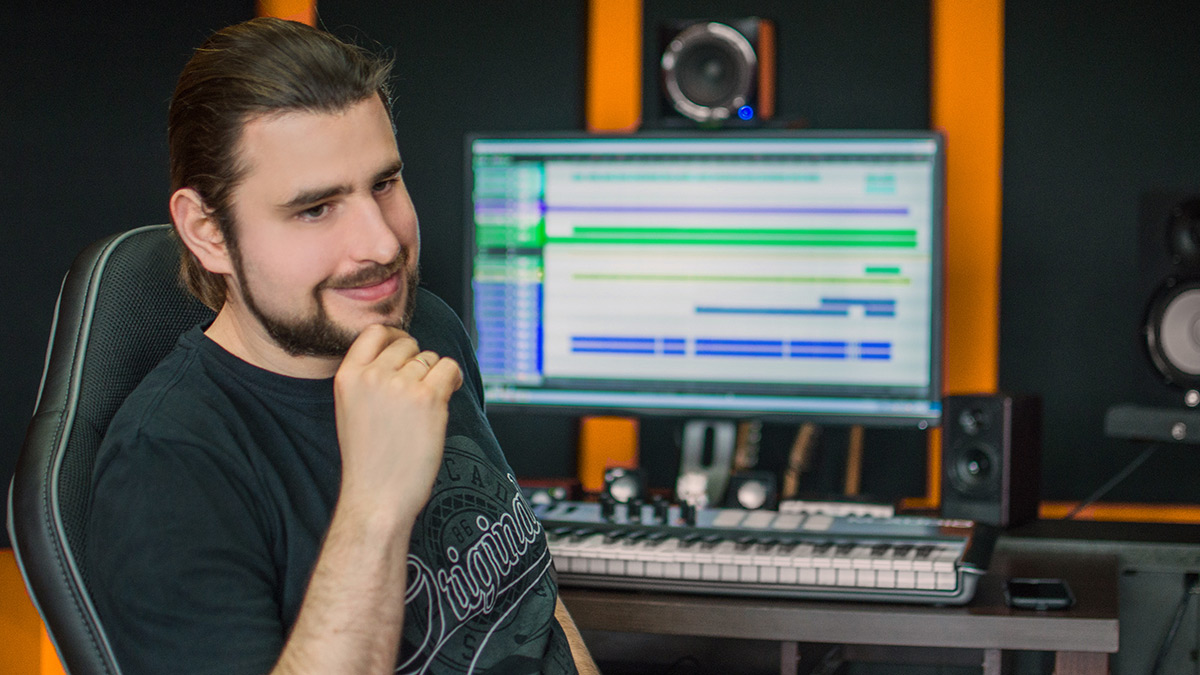
A glimpse of his journey from musician to a programmer to a mixing and mastering engineer, @Patrick Hyde aka The Decibel Man is this month SoundGym Hero.
So how long have you been on SoundGym?
Should be exactly from 27.12.2016, at least that's what my credit card history says :D
What was your first connection to music?
From the very beginning of my life I was really passionate about listening to music. My parents often remind me that back in the days when they played Genesis from cassettes, I was a few years old child would be totally hypnotized by songs like 'Mama' or 'Home by the Sea'.
Yet it took some time since I've decided to move from a music consumer to someone that would take active part in its creation. It happened when I was near my 18. I've just picked up the guitar and started playing like crazy. This very moment can be called a formal start of my musical journey :)
Tell us about your work as a Mixing and Mastering engineer?
Although my start as a musician can sound promising I have to admit that the truth is I've never had enough faith in my skills and never really thought that I could make a living out of it. After studies, I've taken the boring path of an office worker (programmer to be more precise) yet also never quit music.
Stuck between two worlds I've day by day felt that I wanted to be more and more connected to music. Also over the years of making my own music and working with different artists after hours, I've discovered that I'm getting into this blend of art and technology called mixing. Also because of my day job working with technical terms and understanding complex processing was really nothing new to me.
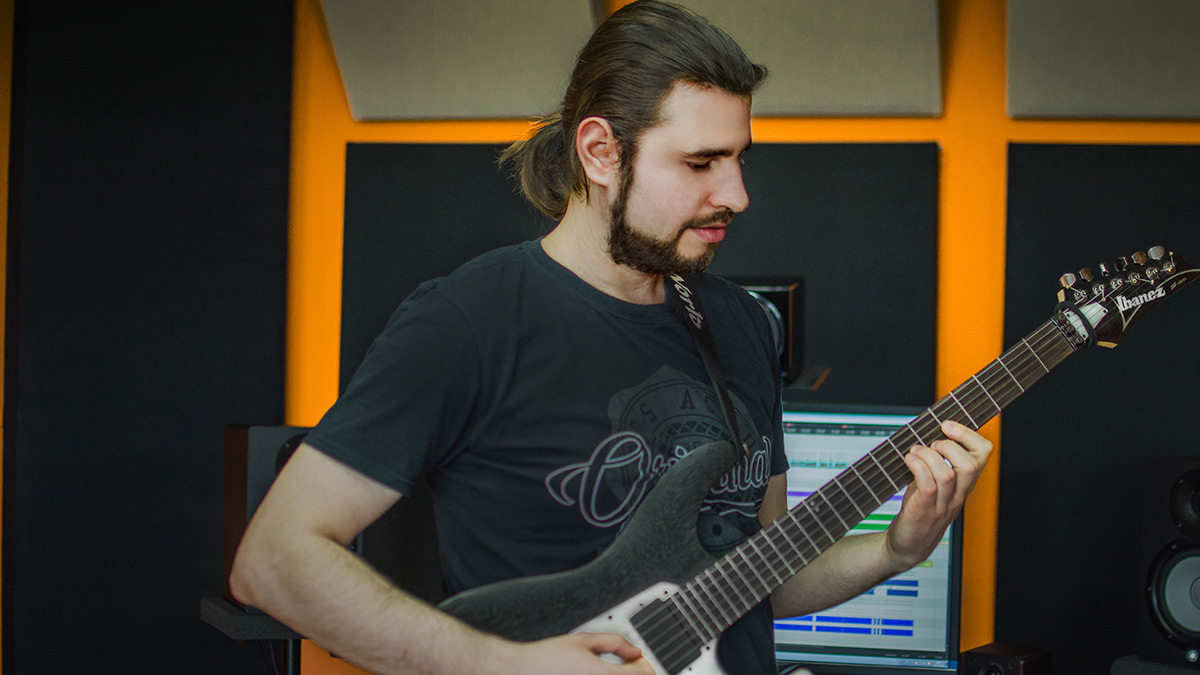
The start 2016 was a break point for me and since then I've decided to focus exclusively and as much as I could on mixing and mastering music. I've quit making my own music, pay less attention to my day job and started working on client's materials and training sessions all days and nights. I was trying to make each mix as best and professional as possible. I've brutally compared (and still comparing) my work to mixes from engineers like Dave Pensando, Chris Lord Alge or Andy Wallace to the point when I knew I've got past my limits and extend my mixing skills boundaries. Also if it was a training session I would send the mix to various people including mix versions provided by the instructors/teachers for blind comparison. The same process goes for mastering.
After some time I was confident enough with my skills to ask artists and bands that I've previously didn't knew to send me their material for mixing (long gone times when people actually came to you in order to get a mix).
The nice part is that although maybe I haven't got a ton of clients all of them were extremely satisfied with the results of my work. Also being a musician really helped in the mixing process because I could look at a song not only from a mix perspective but also from a composition point of view. Sometimes I'll add in that missing ingredient and achieve something better than just putting effects and cracking up the volume on the track.
This year I've launched my website and started looking for clients on a much more global scale promoting my remote mixing and mastering services and also reviewing mixes and sharing knowledge.
What are some of your favorite projects you worked on and why?
For some time I'm working with a polish band called Spring of 86 which makes some nice progressive metal. One of my favorite songs that I've mixed for them was 'The Land' (thanks to their generosity it's available on my site and SoundCloud profile since the whole album is not completed yet).
I've also loved to work on my own projects back in the days since I've treated them like a note in my musical diary so all of them bring back great memories.
What have you been working on lately?
Recently I've got in touch with another polish band Very Slow Music (it took me some time and effort to convince them that I'm the right man for the job :). We're currently working on their EP which will consist of 4 - 5 songs. The fun part is that here I'm not just engineering the whole process but also stepping a bit into producer's boots and actively work with the band helping them shape their composition and sound.
Also, I'm facilitating the process of the mentioned Spring of 86 future album. Here it also gets interesting because this time I'm asked to do the mastering exclusively since one of the band members would like to try mixing it under my supervision. And it's such a great experience to share knowledge and experience in order to see someone grow as a sound engineer.
Who have been the biggest influences on you and how do you think they've shaped your sound?
I think I'm getting inspired all the time listening to various types of music and people, but to highlight the biggest inspirations I've assembled a small list of the most inspiring artists and if possible their most influential songs on me (get ready for some nice variety of music):
Enya - Watermark - Enya is a totally outstanding artist and the song (as well as the whole album) is incredible and really rich in emotions. I always have to hold the tears in my eye when I'm listening to this one and it always reminds me that those emotions are the most important thing that the song can give.
Lustmord - Zoetrope soundtrack - an Incredible dark soundtrack that seeded my love for dark ambient. Lustmord is probably responsible for every dark sparkle that I've put in my own music.
Megadeth - Dave Mustaine is a supreme artist and Megadeth was for a long time my most frequently listened to metal band, also being inspirational for many metal riffs in my own songs.
Metallica - because why not love it next to Megadeth. But seriously THIS is the band that was and remains the definition of metal. Even now songs like 'Whiskey in the jar' remain my top reference track for mixing rock and metal.
Riverside - Reality Dream (series) - a really good progressive band that supremely blends dark existential topics with complex time signatures and scales. A really good example that technical playing doesn't have to be emotionless.
Animals as Leaders - Tempting Times - I think Tosin Abasi was my last big hero of modern metal music. When I've first heard this track I was immediately blown away, I would love one day to blend really technical playing with the burst of energy like this song does
Kas Dunn - I no You - Probably no one knows this one, but to me is my number one track of all times and that's because it's just pure emotion. Played at the very end of the Hypercube movie it just musically sums up everything that the movie is about. I would love to make a track that would pass emotions and feelings to listeners so purely like this one does.
As for mix engineers:
Dave Pensado - I can't stress enough how a cool guy Dave is. Not only that he's so humble and extremely positive, but I think he is the definition of mixing passionate. Learned a lot from Pensado's place and his Into the Lair series and I use this knowledge in every mix.
Chris Lord Alge - Chris is a legend when I've first looked up his mixing credits a huge chunk of songs I've listened to and love we're mixed by him. Every time I see a video of him working in the studio I'm blown away, it's just a whole different level of mixing.
Graham Cochrane - although Graham is more of a teacher than a formal engineer I have to give him huge credit because he was the one who introduced all the mixing basics and concepts to me long before I've found any other meaningful materials on the internet. So technically Graham isn't a direct influence but I have to admit that he's ideas, courses and materials gave me solid mixing fundamentals.
Tell us a bit about your workflow at the studio?
Mixing is really a form of art me so although I have some routines and habits most of my mix moves are totally different depending on the session and the quality of the material. Yet I'll try to squeeze it in a nutshell.
At first, I take a really careful listen to the raw mix provided with the material (fortunately still most of my clients provide such raw mix). I try to highlight all the nice and troublesome things not only from a mixing perspective but also from the composition and emotion side of things. Sometimes when I work with clients for a longer period of time they send me early versions of their songs so I can listen to them and maybe suggest some arrangement changes based on my experience from composing and recording.
Also, a very important thing that I do before I'll touch anything in the session is talking to the artist, understanding their vision, how the tracks support it, what are their concerns and what are their expectations. I can save a lot of time wasted on fixing what you've thought was good (also it's really hard to alter a mix that you've done with a lot of effort and best intentions just because you've didn't understand the idea behind the music).
After I know what to do and have an idea about the mix it's time for the necessary boring evil: editing.
I deliberately do it after I analyze the song because the first time you listen to a track you immediately know what sounds good and what has to be fixed. After that, you lose perspective and distance to the song.
When I have all the tracks in the song edited, colored, grouped and gain stage as well as have the song sections marked I choose the reference tracks for this mix based on the material and the artist requirements. It's important for me to setup my mindset before start mixing so I can know what the goal is. And don't get me wrong it's not about copying someone's sound but if you want it to hit hard you have to know what hitting hard means.
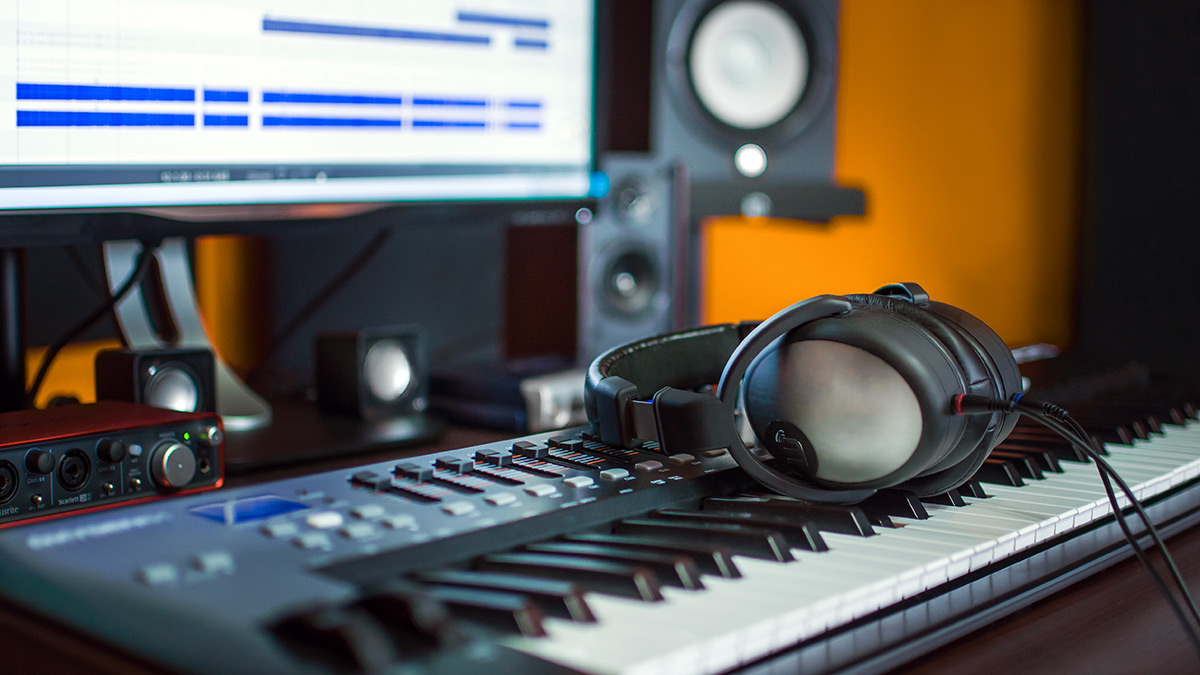
Usually, at this point, I find it valuable to leave the material until the next day to start fresh with the mixing process. This way I'm separating the less exciting stuff and getting it out of my way so I can go full creative on the mix knowing no boring stuff will get in my way.
I usually start the actual mixing by identifying the most important instruments in the song and since I usually mix rock/metal song the foundation lies in the drums bass and guitars. Usually at this point I'm muting everything else including the vocals. I collapse everything to mono and start working on the volumes and after the initial balance is achieved I usually start mixing the drums. Add samples if needed some parallel processing if required and try to do it as much as possible in the context or the rest of the instruments. Also at this point I tend to clean up the low and high end of the core instruments to allow the bass to cut through as well fix the common problem of guitars high end interfering with the overheads.
After I'm initially done with drums I move to bass and next to the guitars. After that I start introducing more and more tracks. I usually pick the final chorus to work on the densest part of the song, yet not always. Sometimes the song changes so much and verses are so different from choruses or the final chorus is so absurdly overwhelmed with additional tracks that I have to mix each section independently using different plugins and settings. This kind of different processing per section is usually applied the most to vocals which I unmute the last. I know a lot of people say that vocals should be mixed first to wrap the song around them, but in my case, this approach wasn't really successful. I mix vocals last because I know I'll mix them to be the loudest and most pronounced track in the whole mix. I also don't save processing power on vocals and throw everything I've got into them. At this point I also reference a lot and listen carefully on different speakers/headphones from tiny earbuds to a mid-range mono speaker, 2+1 and studio monitors.
After I have the tracks sitting nicely in the mix I'll add reverb and delay to create the appropriate illusion of space. In most situations I won't use separate reverb and delay settings on each track but create 3 - 4 different delay busses (usually short, long, ping pong and lately I also started using snap delay a lot especially on vocals) and 3 - 4 different reverbs busses (usually some plate, small space/room, big space/hall and also lately started using spring reverb mostly on vocals and guitars) to send tracks to them in various volume proportions. This way reverb and delay glue tracks together. In most cases the only exception to this rule are drums particularly snare, toms and room which have their individual reverbs adjusted to maximize punch and aggression. After that comes the most important and creative part of the process: automation. I treat automation as my main way of leaving a fingerprint on the mix. It's not just about volume, I automate a lot, from delays on certain words to width, eq, saturation and other effects like a flanger that appears just for a bar of guitar strokes but makes it a unique experience for the listener.
I would also point out that I try to avoid putting effects on the master bus.I know that it's popular these days but if I know that for instance, the mix is too bright it's rather not a problem of all the tracks so I don't put the eq on the master bus but try to find the problematic tracks and fix their eq settings.
Also when the mix is done I never send it to the client the same day I've finished it. I send it the next day giving it a fresh listen. After that I ship it to the client and apply the requested fixes because let's be honest, even if the artist is extremely happy with the mix some small things always need adjustment, it's just how things are. Yet the less of those fixes the closer you are to understanding the musical vision of your client.
As for mastering, I'll clearly say that I'm still learning a lot in this field and at this point each of my mastering sessions looks totally different. Used plug-ins, their settings and order vary a lot depending on the material. Sometimes I'll split the song into sections and master each with a bit different settings, sometimes I'll automate a lot and sometimes I'll just apply the simplest plug-in chain and it's all that's needed. I just try to get as close as possible to the ballpark of great mastered songs and make sure that everything is in its place.
The most important thing is to understand what is the problem that I would like to fix or what the song can benefit from applying such processing. You don't just do it because you have CPU power left :)
Any advice about good habits before starting a mix or mastering session?
Learn and understand the vision of the artist, take a really careful listen to the material, write down all the things that you know that support that vision to further enhance them and the things you've need to fix in order make the listening experience flawless, set your timer and work your ass off!
What is the one trick that you use on every mix?
I think the only trick I could suggest that will work for every session in referencing your mix/master to ones done by professionals. Build your own library of high-quality reference tracks, look for songs that are well mixed/mastered and try to find as much variety as possible. This way you will be able to choose 3 – 4 reference tracks from your library no matter what the mix/mastering session will be. Also try to get some well done but a bit extreme references so that for instance: if you're referencing the level of bass compare it not only with a track that has quite the amount of bass that you're looking for, but also with a one that has a bit too less and another that has a bit too much. This way you'll know that you're in the ballpark.
Creating such reference tracks library takes time but the payoff is really much bigger than the effort.
One Free plugin that you recommend?
It's a really like an oldie reverb plug-in called GlaceVerb (it's not even easy to find it on the internet anymore, I use this copy as well so it should be safe).
It's maybe not a realistic reverb simulator but it has some really unique sounding presets. My favorite is called 'Piano - Ensemble Padder' which sounds just magically especially when used on keys, pads or even guitars and vocals when carefully blend in. I've never found anything like it and everything that makes your mix original makes you stand out as a mix engineer.
What is your secret plug-in that no-one knows about?
Since I'm a programmer once I've created a volume rider plug-in that I've controlled via my midi keyboard fader. The fader was quite small so the plug-in had a variable range of decibels that I could further alter with the sensitivity slider if my hands got away too much during the volume automation recording process. Now that's some secret plug-in that no one knows about! :D
What does the future hold for Patrick Hyde in the music industry?
To be honest I don't know. We live in a crazy world right now and things change much faster than they used to. People like to mix their own music more often than ever (been there done that) and a lot fewer bands and artist are looking for qualified engineers. For me, the struggle to find a good client is much more difficult than mixing a really bad recording (and yes I've done some mixes like that over the years). Also, the whole process of creating an automatic mix and mastering tools have progressed a lot over the years giving us sites like LANDR or tools like Neuron.
One thing I know as a programmer for sure: you can understand code but the code will never understand you. That's why I think that mixing is more than just balance, eq, compression, saturation, reverb and delay.
I will try my best to continue my musical journey as a sound engineer. Fortunately, there are tons of possibilities and alternatives as well. I'm thinking of returning a bit to creating my own music to make some new entries in my musical diary as well as doing it for promotional purposes. I was considering recording some educational videos and also I know that I want to return to making reviews on SoundGym because it's the best I can give to other people on the platform.
All all I hope one day I can proudly live from music exclusively, knowing that I'm doing the thing I love the most, taking those little and big challenges that at the end of the day makes me happier than ever.
Last question, What is your favorite SoundGym Feature and why?
I really like a lot of things in SoundGym since it's a really innovative way of training your ears. I appreciate the large variety of exercises, love the whole gamification idea, also that I can buy things for my studio from money I've earned by training my skills. But if I would pick one most favorite feature it's definitely the fact that I can share my profile on SoundGym. In a traditional gym people usually train a lot (or they should at least) but there is rather little interaction with between them. If you're not with a group of friends usually you get your earbuds on and do the whole training in complete silence (maybe apart from the heavy breathing moments when you actually work :)
In SoundGym it's totally different, I can setup my profile, share photos, add examples of my music, write on spaces and even ask or give a mix critique. It's a great opportunity to share knowledge and learn from others. It makes you really feel that you're a part of a much bigger group of people struggling with their challenges each day like you. I think that this community is the best part of SoundGym.

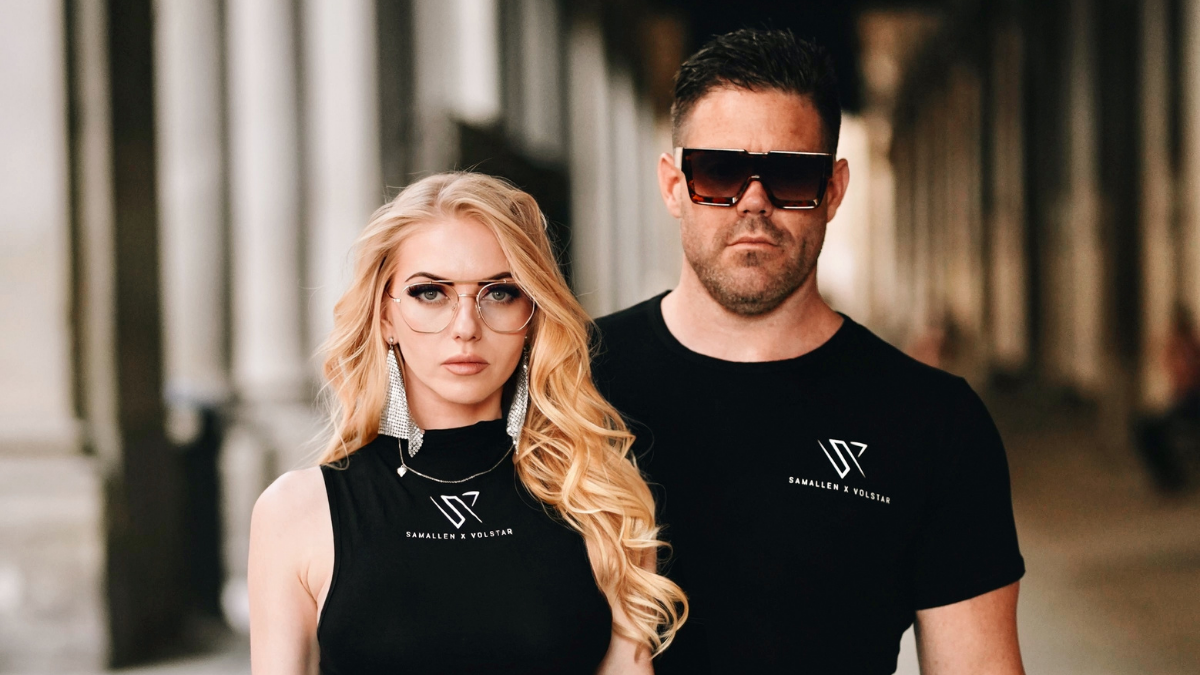
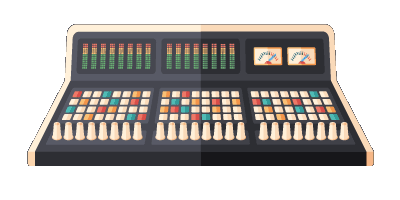
Comments:
Aug 03, 2017
Aug 03, 2017
Login to comment on this post